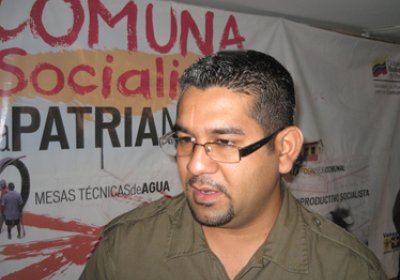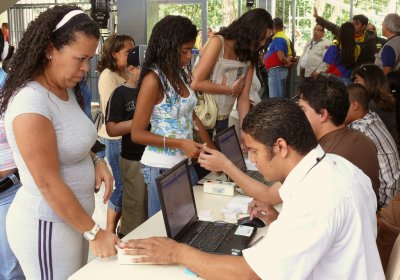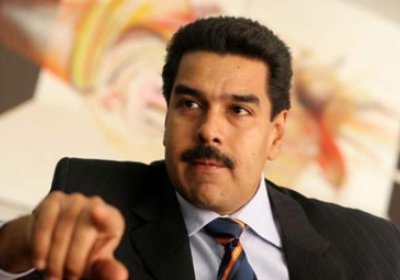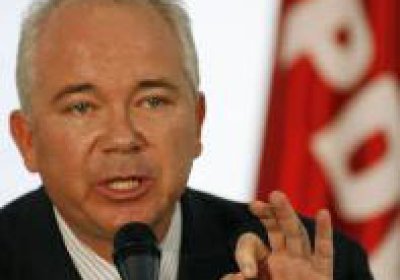Alarm bells should be ringing as the threat of war looms on the horizon, Venezuelan President Hugo Chavez warned in his July 18 weekly column.
The warning came after tensions again flared with neighbouring Colombia, and the Central American nation of Costa Rica agreed to 6000 US troops being deployed on its soil.
Chavez placed Venezuela on high alert and broke diplomatic relations with Colombia after a July 22 meeting of the Organisation of American States (OAS).
Venezuela
Wilder Marcano is a director of the network of communes in Caracas. The communes are part of the push, supported by President Hugo Chavez, to deepen popular power and create a new, revolutionary state. Venezuelanalysis.com said on February 8 there are 184 communes “in construction” across the country.
Francisco Chavez Abarca, who was recently extradited to Cuba, has admitted being contracted by Cuban-born terrorist Luis Posada Carriles to carry out destabilising acts in Venezuela in the lead-up to the September National Assembly elections.
Posada Carriles is a former CIA agent wanted for his role in a 1976 attack on a Cuban plane that left 73 passengers dead. He lives in Miami. The US government, going against international law, has refused Venezuelan and Cuban requests to extradite him.
Venezuelan President Hugo Chavez took a giant symbolic leap in the direction of Latin American independence on July 6 when Venezuela and Ecuador conducted the first bilateral trade deal between two countries using a new trading currency, the Sucre, instead of the US dollar.
The Unitary System of Regional Compensation (Sucre) is the currency the adopted last year by the Bolivarian Alliance of the Americas (ALBA) regional bloc to allow member states to trade without using the US dollar.
Venezuelan President Hugo Chavez said on July 2 that intelligence services at the Caracas airport have arrested a man wanted in connection with terrorist activities in Cuba from the 1970s.
The Venezuelan government said El Salvadorean Francisco Antonio Chavez Abarca tried to enter Venezuela on July 1 on a false Guatemalan passport. Interpol alerted Venezuelan authorities to his identity and requested his arrest.
On July 7, Venezuela extradited Chavez Abarca to Cuba to face charges for bombings on the island.
The head of Venezuelan state oil company PDVSA said on June 24 that the government is to nationalise 11 oil rigs previously operated by a US petroleum firm. This comes after the company, Helmerich & Payne, closed down production and refused to negotiate a new services agreement.
PDVSA president Rafael Ramirez said the nationalisation would “boost domestic production of hydrocarbons and strengthen the policy of full oil sovereignty”.
Oliver Stone's new documentary about Latin America's leftward political shift and its growing independence from Washington is being lambasted by the media. This shouldn't come as a surprise as Stone calls out the mainstream media in his new film South of the Border for its mostly one-sided, distorted coverage of the region's political leaders — most significantly Venezuelan President Hugo Chavez .
The Venezuelan National Assembly (NA) is considering a bill to decriminalise abortion, but only in restricted cases, the June 10 Ultimas Noticias reported.
It was one of the proposals of the committee for the rights of women in the NA. It is part of a raft of proposals to be considered in changes to a new penal code, to eliminate gender bias.
May Day in Caracas, Venezuela, was “deeply inspiring”, Adrian Evans, deputy state secretary of the WA Maritime Union of Australia, told a meeting of 40 people in Fremantle on June 16. Evans travelled to Venezuela as part of the Australia-Venezuela Solidarity Network’s 2010 May Day brigade.
“I love May Day in Fremantle”, he said. “But, I can tell you, being with one-and-a-half million workers was incredible.”
Venezuela foreign minister Nicolas Maduro said on June 2 that Venezuela’s announced cancelling of Haiti's debt of US$395 million with Petrocaribe was now official.
Petrocaribe is a program under which the Venezuelan government offers discounted oil, to be paid back over long-term low-interest loans, to Caribbean and Central American nations.
Maduro made the announcement after the World Summit on the Future of Haiti. The summit was held in the Dominican Republic with the participation of representatives from 50 countries.
The struggle against inflation, corruption, and destabilisation in Venezuela’s economy is continuing.
In the last week of May, workers from nationalised companies marched to protest hoarding and price speculation and call for worker-run management, while national investigators arrested the former president of the state-run food company PDVAL for alleged involvement in the diversion of food from the market.
Venezuelan trade unionist and community educator Alexis Adarfio Marin visited Australia last month, informing many audiences of the radical changes being carried out by Venezuela’s Bolivarian revolution.
Adarfio was a guest of the Search Foundation, which hosted a range of international guest speakers at its Australian Left Renewal Conference in Sydney over May 29-30.
- Previous page
- Page 60
- Next page








